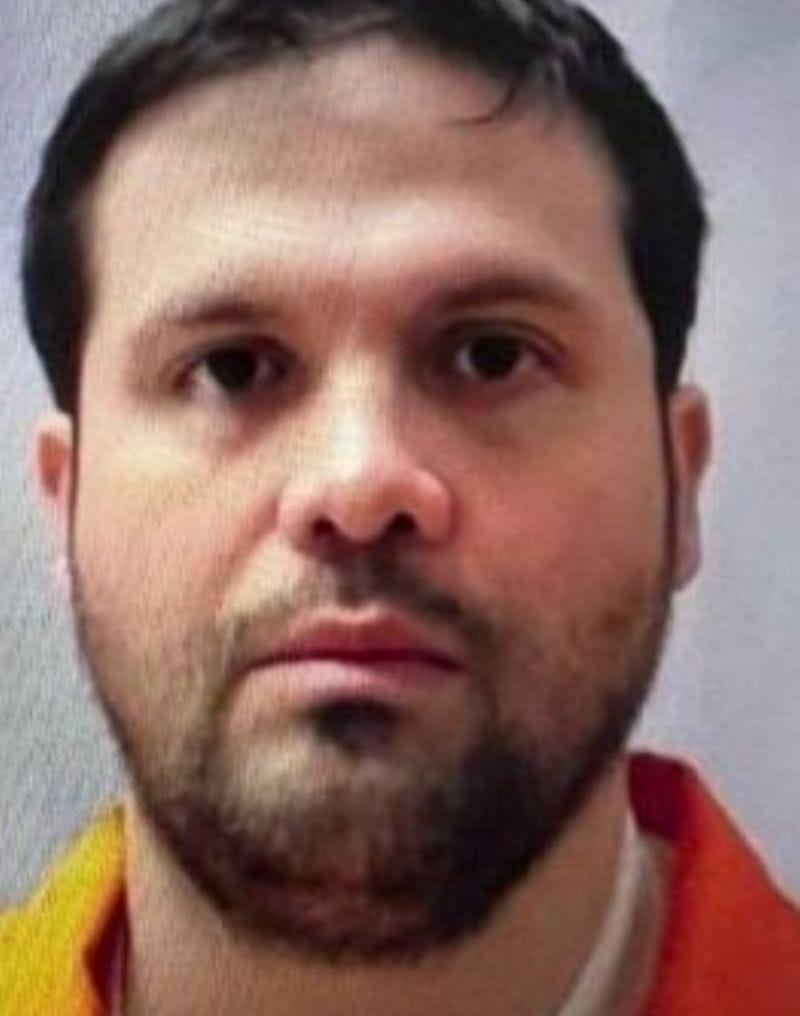Judge Allegedly Dismisses Key Evidence Against Joaquín Guzmán López in High-Profile Kidnapping and Treason Case
The Attorney General's Office (FGR) accused Judge Alejandro Díaz Cruz of ignoring 78 pieces of evidence linking Joaquín Guzmán López to kidnapping and treason. The FGR criticized the judge's dismissal of the evidence and vowed to continue its investigation transparently.

The Attorney General's Office (FGR) has ignited controversy by claiming that Judge Alejandro Alberto Díaz Cruz of Culiacán’s Federal Justice Center allegedly ignored crucial evidence linking Joaquín Guzmán López, also known as “El Güero Moreno,” to serious charges of kidnapping and treason. With 78 pieces of evidence reportedly presented to substantiate the claims, the FGR’s frustration with the judge’s response to these charges has quickly escalated into a public dispute, with implications that extend well beyond the courtroom walls.
This startling dispute emerged after Judge Díaz Cruz, speaking at a “contramañanera” conference on judicial reforms, addressed allegations concerning his handling of the case. These judicial conferences, initiated by the Judicial Branch of the Federation (PJF), aim to counter recent criticisms from the National Palace. The controversy surrounding the judge’s decision underscores the increasing tension between Mexico’s autonomous prosecutorial authority, helmed by Alejandro Gertz Manero, and sections of the judiciary—a rift many believe is emblematic of a growing struggle over the direction of justice in Mexico.
According to the FGR, the judge’s decision to reject their request for an arrest warrant against Guzmán López, son of notorious drug lord Joaquín "El Chapo" Guzmán, was based on incomplete reasoning. In a sharply-worded statement, the FGR indicated that Judge Díaz Cruz dismissed an extensive array of evidence, some 78 pieces in total, that the Federal Public Prosecutor's Office provided to establish the illegal acts Guzmán López allegedly committed, including kidnapping and treason. Prosecutors argue that this evidence was not just persuasive but would have sufficed to issue an arrest warrant, as outlined by Article 141 of Mexico’s National Code of Criminal Procedure.
The FGR insists that Judge Díaz Cruz’s explanation during his conference participation failed to acknowledge the gravity and volume of the evidence. Prosecutors accuse the judge of omitting key details, such as the fact that the arrest warrant request was not related to the murder of Héctor Melesio Cuén Herrera, a former rector of the Autonomous University of Sinaloa (UAS), but strictly for Guzmán López’s alleged role in the kidnapping of Ismael “El Mayo” Zambada. FGR officials assert that the judge’s omission creates an inaccurate portrayal of the case, causing confusion and undermining the credibility of the prosecution's exhaustive investigation.
Blood Evidence and Allegations of Obfuscation
A focal point in the FGR’s complaint against the judge is his handling of blood evidence. This evidence, the FGR claims, was collected from the scene where Zambada was allegedly kidnapped and the former rector Cuén Herrera was murdered. Judge Díaz Cruz, however, reportedly dismissed this evidence as insubstantial for proving Guzmán López’s involvement in the crimes of kidnapping and treason, implying that the evidence lacked clarity in tying Guzmán López to the alleged crimes.
The FGR responded by stressing that the blood samples were, in fact, processed and thoroughly examined, and that these samples will be critical in the murder case against other suspects tied to Cuén Herrera’s death. FGR prosecutors argue that Judge Díaz Cruz’s dismissal of this evidence in the Guzmán López case sidesteps its importance and creates unnecessary doubts around an investigation that, they insist, remains both comprehensive and meticulously documented.
In a statement steeped in urgency, the FGR reasserted its commitment to prosecuting Guzmán López, promising “clear and transparent” criminal proceedings while vowing to report developments with “respect, truthfulness, and objectivity.” The prosecutorial body accused Judge Díaz Cruz of downplaying the depth of their evidence in an attempt to cast doubt on their case, a move they suggest could undermine public confidence in the judicial system itself.
The FGR’s grievances echo a broader critique often voiced against Mexico’s judiciary—namely, that certain judicial officials have been lenient, even when faced with overwhelming evidence in high-stakes cases involving organized crime. For years, critics have pointed to a series of controversial judicial decisions as evidence of a judiciary susceptible to either political influence or intimidation by powerful criminal actors.
The Future of the Guzmán López Case
The timing of this case, and its subsequent controversy, is critical. Judge Díaz Cruz’s comments came during the PJF’s “contramañanera” initiative, a campaign launched to counter government criticisms of Mexico’s judiciary. This initiative aims to provide transparency and address any perceived injustices or misrepresentations propagated by officials in high office. The FGR’s swift and pointed response illustrates how the prosecutor’s office sees these comments as a challenge to their integrity and an unjust portrayal of their handling of Guzmán López’s case.
Supporters of judicial reform argue that such exchanges are necessary for transparency and accountability, while critics worry that this ongoing tug-of-war could compromise the impartiality of judges. They fear it could foster an environment in which some judges might feel compelled to adopt a confrontational stance against the prosecutorial branch, rather than fostering cooperation in the pursuit of justice.
As the FGR continues to scrutinize the actions of Judge Díaz Cruz, questions loom over what impact this case will have on the future of high-profile criminal trials in Mexico. The FGR has signaled its resolve, emphasizing that they will persist in prosecuting Guzmán López and bringing him to justice. Yet, whether this persistence will lead to the issuance of a long-anticipated arrest warrant remains uncertain, especially in light of the judicial skepticism they currently face.
What remains clear is that this case has laid bare the frictions within Mexico’s justice system—an uneasy relationship that, many say, needs mending to ensure that the legal apparatus functions effectively and without bias. As the prosecutorial and judicial branches continue to spar in public, both sides are likely aware that their actions set a precedent for how justice is pursued—and perceived—in a country where accountability is often as elusive as the suspects themselves.
For many watching this case unfold, it raises a pressing question: Can justice truly be served when those entrusted to uphold it appear locked in a battle of egos and influence? With Guzmán López still unrestrained by formal charges, and with the FGR and the judiciary seemingly at odds, Mexico’s fight against organized crime hangs in the balance, awaiting clarity on whether its legal institutions can unite to deliver justice without compromise.




